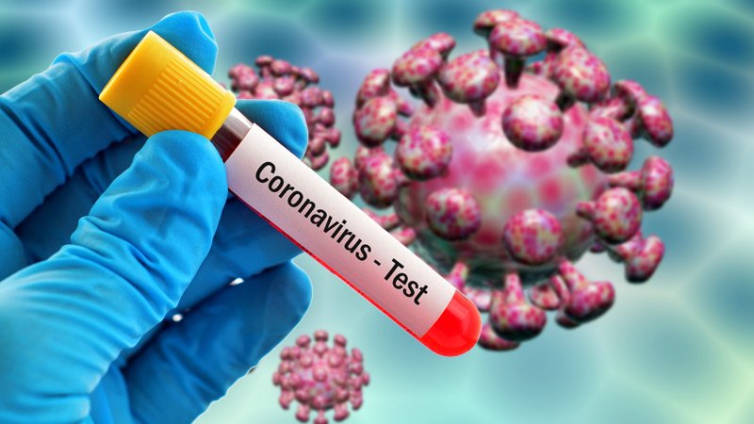
Audio By Carbonatix
Shocking but it is true. Strange United Kingdom (UK) variants of Covid-19 said to be more ferocious than the one we knew in 2020, have escaped from the cold and made their way to the warm weather in Ghana.
Last Tuesday, during the Covid-19 Media update, Director General of the Ghana Health Service (GHS) announced that the new Covid-19 variants from the UK are spreading faster and widely among the Ghana population with a higher disease burden.
According to the GHS boss, the trend of the spread of the UK variants could overtake the type already existing in our midst. But how come? Did we shut our doors and went to sleep?
KIA and stringent measures
This revelation by the GHS Director-General is worrying and I guess it is valid to start asking questions here because of the stringent multi-layered measures put in place last year to tackle likely imported Covid-19 cases at Kotoka International Airport (KIA).
Per the measures, it became mandatory that all arriving passengers go through those procedures to ensure zero importations.
This was in September 2020 when the country opened its air border to international flights. The elaborate structure and processes were widely in the news and we all hailed loudly the Ghana Airports Company and the GHS.
A compulsory antigen test for all international arrival passengers at a cost of $150 or GHC900 was introduced. Provision was even made for passengers to pay on-line before arrival. Even though calls were made to have the amount reduced, comparing it to what obtains in other countries, the payment policy has remained to date.
So, with the measures put in place, who could have sneaked in with the UK variants? As per the protocols, an arriving passenger must not have symptoms suggestive of Covid-19 infection. A passenger entering by air was also required to possess a negative PCR test result done 72 hours before departure from a certified laboratory in the country of embarkation.
Upon arrival at KIA, passengers who paid for their antigen test on-line are expected to proceed to a sampling cubicle for their samples to be taken while those who were unable to pay on-line queue up to pay at a dedicated payment centre before getting their samples taken.
They all then move to the arrival hall where passengers are screened at a Port Health station and the result of their Covid-19 test made known to them.
Passengers who test negative then proceed to immigration, baggage claim and then exit. Those with positive results are said to be given further clinical assessment and treatment while those unable to pay are detained or quarantined.
This is the existing protocols which by all indications is not leaving any stones unturned in detecting imported cases even before an infected passenger came out of KIA. So then, how did the ever fast-spreading ferocious UK variants sneak in and into homes and public spaces to cause us the havoc one is seeing since January this year?
The daily infection rate of over 700 with active case count in the 5,000s it is extremely worrying for us as a country not to mention the increase in mortality.
Fake fit-to-fly certificates
Monitoring a BBC news report during the week, it has been alleged that fake fit-to-fly UK National Health Service (NHS) certificates are being sold by some unscrupulous persons to travelers who are cutting corners because they want to travel by every means. The consequences to others are of less concern to them.
According to the BBC report, a man was arrested outside Luton airport near London, with fake NHS fit-to-fly certificates. The certificates which are apparently easy to make are also sold abroad. This is the level criminals bent on making money, regardless of the dire consequences for humans will go.
So with Ghana’s reported active cases multiplying since January, is it the case that the business of hungry, selfishcriminals whose quest is to make money through fake fit-to-fly certificateshas penetrated our KIA?
Disturbing as the case is, the BBC news report should be an eye-opener for our airport security. Fit-to-fly certificates must painstakingly, be scrutinised with microscopic eyes before passengers, nationals or non-nationals are admitted to the country.
It is time to seal every loophole in admitting international passengers at KIA. The worrying infection rates, the pressure on our health system and dedicated medical staff and the painful loss of lives are regrettable.
It means we should all take adequate precautions but it equally means that a bigger radial must be put on processes in admitting international passengers at KIA.
Writer’s email address:vickywirekoandoh@yahoo.com
Latest Stories
-
Ghana is rising again – Mahama declares
40 minutes -
Firefighters subdue blaze at Accra’s Tudu, officials warn of busy fire season ahead
1 hour -
New Year’s Luv FM Family Party in the park ends in grand style at Rattray park
1 hour -
Mahama targets digital schools, universal healthcare, and food self-sufficiency in 2026
1 hour -
Ghana’s global image boosted by our world-acclaimed reset agenda – Mahama
2 hours -
Full text: Mahama’s New Year message to the nation
2 hours -
The foundation is laid; now we accelerate and expand in 2026 – Mahama
2 hours -
There is no NPP, CPP nor NDC Ghana, only one Ghana – Mahama
2 hours -
Eduwatch praises education financing gains but warns delays, teacher gaps could derail reforms
2 hours -
Kusaal Wikimedians take local language online in 14-day digital campaign
3 hours -
Stop interfering in each other’s roles – Bole-Bamboi MP appeals to traditional rulers for peace
3 hours -
Playback: President Mahama addressed the nation in New Year message
4 hours -
Industrial and Commercial Workers’ Union call for strong work ethics, economic participation in 2026 new year message
6 hours -
Crossover Joy: Churches in Ghana welcome 2026 with fire and faith
6 hours -
Traffic chaos on Accra–Kumasi Highway leaves hundreds stranded as diversions gridlock
6 hours

